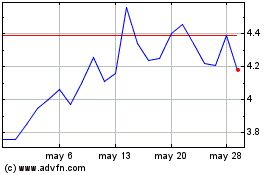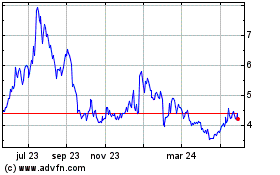The federal defense contract will see Rocket
Lab collaborate with AFRL on advanced digital engineering processes
for the Archimedes engine, a critical integration for National
Security Space Launch.
Rocket Lab USA, Inc. (Nasdaq: RKLB) (“Rocket Lab” or “the
Company”), a global leader in launch services and space systems,
today announced it has been awarded a federal defense contract with
a value up to $8m by the U.S. Air Force Research Laboratory (AFRL)
to showcase Rocket Lab’s engineering processes and support the
development of Rocket Lab’s new reusable rocket engine, Archimedes.
This latest contract recognizes the potential of Rocket Lab and
Neutron, the Company’s larger reusable rocket, to provide
capability for the National Security Space Launch program
(NSSL).
The AFRL contract will explore ‘digital engineering’ (DE)
concepts related to Archimedes, Rocket Lab’s new oxidizer-rich
staged combustion cycle rocket engine that will power the reusable
first stage of Neutron and its second stage capable of delivering
up to 13,000 kilograms of payload to low Earth orbit. “AFRL has
been focusing on DE research, demonstration and implementation, and
this provides an early foray into implementing DE into a Launch
Vehicle’s vendor’s development,” says Frank Friedl, AFRL/RQR DE
Lead.
The contract will facilitate AFRL’s larger effort to develop a
digital engineering technology ecosystem that reduces cost,
schedule, and risk throughout Space Force programs. The contract
includes options to expand Rocket Lab’s implementation of digital
engineering processes across the Neutron propulsion system, and
further build the digital engineering framework for NSSL Phase 3
Lane 1 launch providers.
Rocket Lab Founder and CEO, Sir Peter Beck, says: “This contract
is a win-win when it comes to defense and industry partnerships. It
not only allows the U.S. Air Force to collaborate with industry
leaders like the Archimedes team to help modernize the U.S. Air
Force’s engineering processes and capabilities, but it will also
support smoother integration of Neutron to the NSSL program to more
efficiently and quickly provide for some of the nation’s most
critical missions. We’re looking forward to showcasing our novel
technology solutions for the AFRL to help drive their digital
engineering strategies to reality.”
“Over the last decade we’ve seen dramatic improvements from
commercial space on engine development, allowing us to shift to
addressing space access shortfalls,” says Director Rocket
Propulsion Division, Dr. Shawn Phillips. “Digital engineering
implementation for space access is the framework we need all of
industry to embrace, as it can and will impact each area of need.
It’s why programs like this one are a significant step forward in
how we integrate faster, speed up certification and advance success
of commercial space.”
Other Department of Defense agreements in place that support
Neutron’s development include a $24.35m contract with the U.S.
Space Force’s Space Systems Command (SSC) for the rocket’s upper
stage, and a research agreement with the United States
Transportation Command (USTRANSCOM) that is currently exploring
point-to-point cargo transport use cases employing the Neutron
launch vehicle.
About Archimedes
The Archimedes engine is an oxidizer-rich staged combustion
cycle engine that will power the reusable first stage of Neutron
and the new rocket’s second stage that is designed to carry up to
13,000 kilograms of payload to space. Capable of producing up to
165,000 (733 kilonewtons) pounds of thrust per engine, Archimedes
operates at lower stress levels than other rocket engines to enable
rapid and reliable reusability. The combined thrust of nine
Archimedes engines for Neutron’s first stage is designed to reach
1,450,000 lbf total. Archimedes uses a cryogenic propellant mix of
liquid oxygen and methane to enable higher reusability and
performance, and many of its critical components are 3D printed
including Archimedes’ turbo pump housings, pre-burner and main
chamber components, valve housings, and engine structural
components.
The Archimedes engine will power Rocket Lab’s new reusable
medium-lift rocket Neutron, a next-generation challenger to deliver
a cost-effective, reliable, and responsive launch service for
commercial and government missions. The advanced design of Neutron
includes carbon composite for all of the rocket’s major structures
and an innovative upper stage that enables high-performance for
complex satellite deployments, including the deployment of
satellite mega-constellations.
+ About Rocket Lab
Founded in 2006, Rocket Lab is an end-to-end space company with
an established track record of mission success. We deliver reliable
launch services, satellite manufacture, spacecraft components, and
on-orbit management solutions that make it faster, easier, and more
affordable to access space. Headquartered in Long Beach,
California, Rocket Lab designs and manufactures the Electron small
orbital launch vehicle, a family of flight proven spacecraft, and
the Company is developing the large Neutron launch vehicle for
constellation deployment. Since its first orbital launch in January
2018, Rocket Lab’s Electron launch vehicle has become the second
most frequently launched U.S. rocket annually and has delivered
190+ satellites to orbit for private and public sector
organizations, enabling operations in national security, scientific
research, space debris mitigation, Earth observation, climate
monitoring, and communications. Rocket Lab’s family of spacecraft
have been selected to support NASA missions to the Moon and Mars,
as well as the first private commercial mission to Venus. Rocket
Lab has three launch pads at two launch sites, including two launch
pads at a private orbital launch site located in New Zealand and a
third launch pad in Virginia. To learn more, visit
www.rocketlabusa.com.
+ AFRL
The Air Force Research Laboratory is the primary scientific
research and development center for the United States Air Force.
AFRL plays an integral role in leading the discovery, development
and integration of affordable warfighting technologies for our air,
space, and cyberspace force. With a workforce of more than 11,000
across nine technology areas and 40 other operations across the
globe, AFRL provides a diverse portfolio of science and technology
ranging from fundamental to advanced research and technology
development. For more information, visit www.afresearchlab.com.
+ Forward Looking Statements
This press release contains forward-looking statements within
the meaning of the Private Securities Litigation Reform Act of
1995. We intend such forward-looking statements to be covered by
the safe harbor provisions for forward looking statements contained
in Section 27A of the Securities Act of 1933, as amended (the
“Securities Act”) and Section 21E of the Securities Exchange Act of
1934, as amended (the “Exchange Act”). All statements contained in
this press release other than statements of historical fact,
including, without limitation, statements regarding our launch and
space systems operations, launch schedule and window, safe and
repeatable access to space, Neutron development, operational
expansion and business strategy are forward-looking statements. The
words “believe,” “may,” “will,” “estimate,” “potential,”
“continue,” “anticipate,” “intend,” “expect,” “strategy,” “future,”
“could,” “would,” “project,” “plan,” “target,” and similar
expressions are intended to identify forward-looking statements,
though not all forward-looking statements use these words or
expressions. These statements are neither promises nor guarantees,
but involve known and unknown risks, uncertainties and other
important factors that may cause our actual results, performance or
achievements to be materially different from any future results,
performance or achievements expressed or implied by the
forward-looking statements, including but not limited to the
factors, risks and uncertainties included in our Annual Report on
Form 10-K for the fiscal year ended December 31, 2023, as such
factors may be updated from time to time in our other filings with
the Securities and Exchange Commission (the “SEC”), accessible on
the SEC’s website at www.sec.gov and the Investor Relations section
of our website at www.rocketlabusa.com, which could cause our
actual results to differ materially from those indicated by the
forward-looking statements made in this press release. Any such
forward-looking statements represent management’s estimates as of
the date of this press release. While we may elect to update such
forward-looking statements at some point in the future, we disclaim
any obligation to do so, even if subsequent events cause our views
to change.
View source
version on businesswire.com: https://www.businesswire.com/news/home/20241112337882/en/
+ Rocket Lab Media Contact Murielle Baker
media@rocketlabusa.com
Rocket Lab USA (NASDAQ:RKLB)
Gráfica de Acción Histórica
De Dic 2024 a Ene 2025

Rocket Lab USA (NASDAQ:RKLB)
Gráfica de Acción Histórica
De Ene 2024 a Ene 2025
